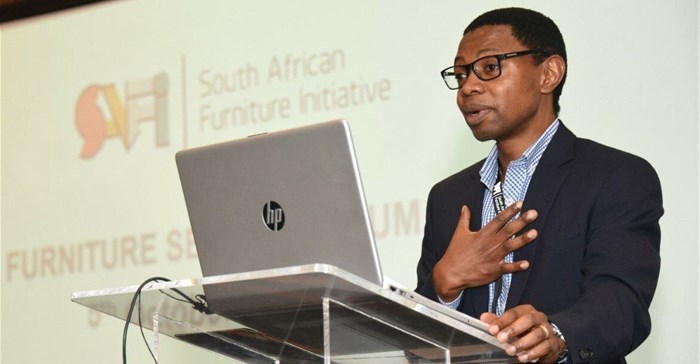
Top stories


Marketing & MediaWarner Bros. was “nice to have” but not at any price, says Netflix
Karabo Ledwaba 1 day




More news

Logistics & Transport
Maersk reroutes sailings around Africa amid Red Sea constraints

















According to Penwell Lunga, chairperson of Safi, it is the organisation's objective to build a globally competitive and transformed furniture industry, but this aspiration cannot be achieved without partnership. “We believe that by taking the theme of the Furniture Sector Forum, namely, 'Cohesion: Better is Together' on board, we can launch into the future as a team.”
During his presentation, Lunga highlighted four strategic priorities on how Safi can take the knowledge and know-how of industry stakeholders and combine it with Safi’s access to policymakers and markets to grow and nurture the furniture sector.
By aligning market access, trade interventions and remedies, market intelligence and skills development with the Furniture Industry Master Plan (FIMP), Lunga outlined specifics on how to ensure the success of these priorities and Safi’s.
“We want to be leaders in creating market development opportunities, including local raw material supply as well as driving an increase in public and government procurement of locally-manufactured school and office furniture,” he told the attendees.
“Furthermore, we must stop the illegal import of products and build much-needed skills development in the furniture industry.”
Safi plays the role of a connector in an industry made up of many small and medium-sized enterprises without access to policymakers, local and international markets and manufacturers. The organisation believes that quality standards are instrumental in ensuring differentiation in the local sector's product offering when compared to the many imported products entering the South African market.
“We, as an industry, have to make sure that we are providing a quality product, exceeding that of our international competitors, backed by a guarantee,” Lunga emphasised.
Safi is encouraged to work with industry stakeholders to create market access opportunities to grow the industry, align relevant policies, drive competitive manufacturing and support sustainable raw material supply.
“We need everyone to get involved, to be part of a growing industry on the cusp of becoming globally competitive where we all can achieve our common goal by believing in cohesion, where together is better,” Lunga concluded.